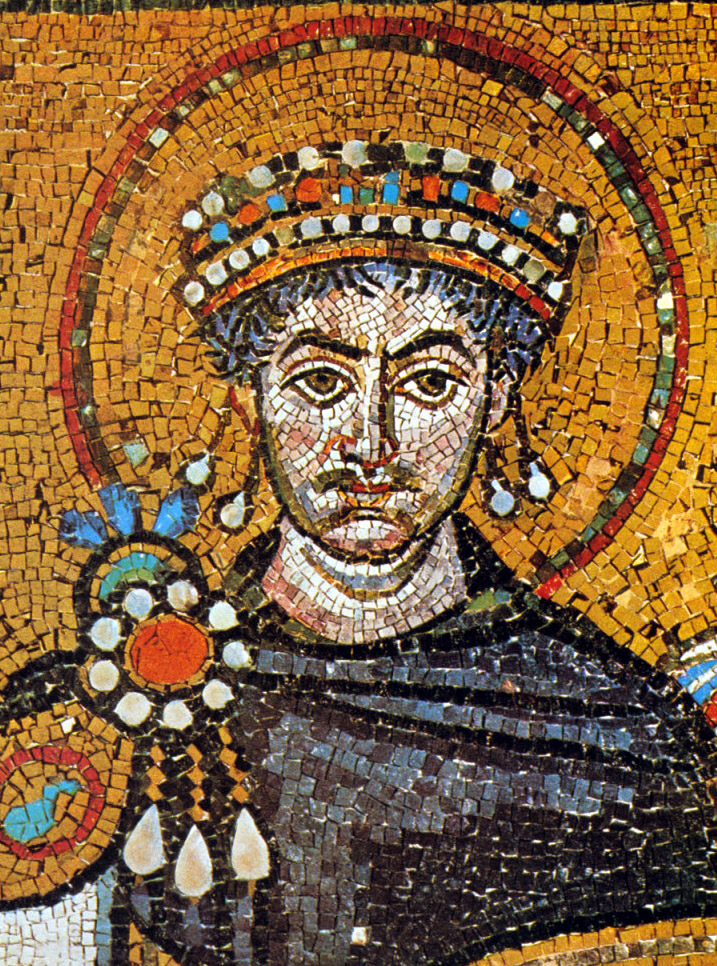 |
|||||||||||||||||||
|
|||||||||||||||||||
Ecc514 - Orthodox Ukrainian jurisdictions |
|||||||||||||||||||
Lesson 2: Unity prior to the Slavic Expansion - 6Constantinople (553 C.E.)
Personal quarrels among bishops and the interference of the palace in theological and ecclesiastical matters helped to create an unfortunate situation in the Church that even the great Emperor Justinian's authority and influence failed to correct. Justinian favoured at first the Monophysites but later sided with the formal Orthodox view against it. However, Empress Theodora encouraged the Monophysites to create new division by refining by bolstering their arguments. She stirred up a new controversy regarding the theological positions of three distinguished theologians already dead for a century. These were the three Antiochian bishops and renowned teachers, Theodore of Mopsuestia, Theodoret of Cyrus, and Ibas of Edessa. The accusation was that the writings of all three, tainted with Nestorianism, had been condemned by the Third Ecumenical Council. This was something new. The Monophysite-accusers wished all three to be condemned even though they were dead. Justinian, a devout Christian, was compelled by the fury of the controversy to call this Fifth Ecumenical Council in Constantinople which opened on May 5, 553. It was presided over by the Patriarch of Constantinople Eutychios. One hundred sixty five bishops attended, and the writings of the three famous teachers were condemned and they themselves were anathematised. It is not difficult to sense the shift in mentality the church had had from the days in which her fathers sought to protect and bring the good news of salvation to souls. Now they were cursing the dead. And even with the influence of a an Emperor only 165 bishops had come to the Council. Such was the fruit of monophysitism. It had apparently crept into the ecclesiology of the church. She no longer had Christ as her head. She had mixed up her role and now thought that her bishops were the head. But she was merciless. Something was clearly amiss and a minority of bishops present sensed it. In this case the bishops in the right were those from the West. During the Council a quarrel erupted between Eastern and Western bishops as to anathematising the dead, and for a time the name of the Pope was erased from the diptychs. But as a result of Justinian's efforts, a permanent rupture between East and West was prevented. While offering no voice to the Non-Chalcedonians, the Council confirmed the Church's teaching on the dual nature of Christ, and reaffirmed that He is both Truly God and Truly Man. Emperor Justinian himself confessed his Orthodox faith in a form of the famous Church hymn "Only begotten Son and Word of God." After adding his own portion to the liturgy he then worked to make it canon law that all local churches must use the same liturgy, which has come to be known as the Liturgy of John Chrysostom. It is by no means the most ancient liturgy, but it has been preserved to this day by all Orthodox Christian and Churches. The fifth great ecumenical council also condemned other dead saints - Origen, Didymus, and Evagrius for teaching the pre-existence of souls, re-incarnation, and the teaching called "apokatastasis," which is a Biblical term referring to the restoration of all things (Mt11:17). The teaching was one that emphasized the great mercy of God. It started first with Cyril of Alexandria (Stromata) and was held by Isaac the Syrian and Gregory of Nyssa and others, but had various forms which included the ultimate salvation of demons, that heavenly bodies possessed souls, and other errors. There is no question that Christians can look forward to the restoration of all things. It is central to the message of Elijah preached at St. Michael Academy. But when we use this term we do not mean that the devils will be saved and we are not talking about reincarnatin. There are differences over what the term implies. We see it as the restoration to the heart and truth of God that is appropriate for a bride receiving her husband in matrimony for all the Lord's elect. Elijah will begin this call. The Lord will complete this call because He alone can do this work. We in no way mean to imply by use of this term a belief in reincarnation. We do believe, however, that the Lord shall rule over all things and that we, his chosen children and bride, are heirs of every good thing. In today's Orthodox Church we do not look at the anathema's pronounced at this Second Council of Constantinople as a condemnation of souls, but as an expression of extreme emphasis intended to posit fear of error and concern for truth. This does not prevent those appointed to leadership as bishops from possessing hearts that are far from the Lord's. But in any event, the dynamics do reveal the times, which were not ideal. This was the Orthodoxy and the standard that was being carried forward before it ever reached the land of the Rus …
|
|||||||||||||||||||
|
|||||||||||||||||||
 The Monophysite controversy continued unabated even after the condemnation of Eutyches and the issuing of the Chalcedonian Statement of Faith.
The Monophysite controversy continued unabated even after the condemnation of Eutyches and the issuing of the Chalcedonian Statement of Faith.